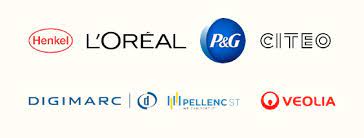
This would make it ready for market entry and will also lay the groundwork for the launch of a pilot market in France in 2024. The 2030 mandatory EU-wide targets for plastic recycled content in packaging requires transformational change across the entire value-chain, particularly for manufacturers and retailers who use plastic packaging. Innovative technologies will enable these obligations to be met, creating opportunities for leaders in the circular economy for packaging.
Final phase of R&D:
Overseen by the HolyGrail 2.0 technical team, the tests will assess the technology’s capability to detect, sort and eject two types of flexible packaging material – PP flexibles, produced by PepsiCo Inc., and LDPE flexibles, produced by Essity and P&G. Granular sorting trials will be carried out in the Materials Recovery Facility Hündgen Entsorgung.
At the same site, we will also start a three-month sorting trial on digital watermarked rigid packaging produced and launched into the Danish and German markets by several HG2.0 member companies, with the aid of two prototypes developed by machine vendor Pellenc ST and technology provider Digimarc installed on the commercial sorting line of Hündgen Entsorgung.
Reprocessing trials
Two industrial-sized recycling tests will then complete Phase 3. Testing of the PP films and PE flexible fractions collected at Hündgen Entsorgung will be undertaken by Borealis, whereas testing of the separated non-food PET bottle stream resulting from the rigid trial, will take place at Indorama Ventures’ Recycling plant in Verdun (FR).
If successful, the technology would reach TRL 9 – actual system proven in operational environment.
Practical application of the technology in France: 2024 PILOT MARKET
In parallel, a new workstream within the project has kicked-off, with a view to executing a pilot market in France in 2024. So far 7 member companies have joined forces for the rollout of the technology in the French market for HDPE rigid packaging, united by the objective of proving the advanced sorting capability of digital watermarks – with the support of Citeo, one the French EPR organisations. Brand owners Henkel, L’Oréal and P&G will enhance a significant part of their HDPE rigid packaging portfolios for the French market with digital watermarks in the coming months. After usage by the consumer, curbside-collected post-consumer waste will be brought to Veolia’s PlastiLoop Brenouille facility (FR), where the watermark technology system developed by Pellenc ST and Digimarc will separate the enhanced non-food HDPE stream from the non-enhanced packaging waste.
Afterwards, a specific granular sorting trial will take place on the enhanced HDPE rigid packaging: streams will be divided into detergent and cosmetic streams, and will be reprocessed with the aim to develop Fit-for-Use detergent and cosmetic rHDPE grades respectively.
This initiative will serve as an important bridge between the R&D phase and commercial rollout, bringing real-life learnings to participating companies, improving the recycling journey for a true circular economy. If successful, this pilot market would provide further evidence of the readiness of the HolyGrail 2.0 technology not only from a technical, but also from an economic perspective, paving the way for market adoption at scale.






